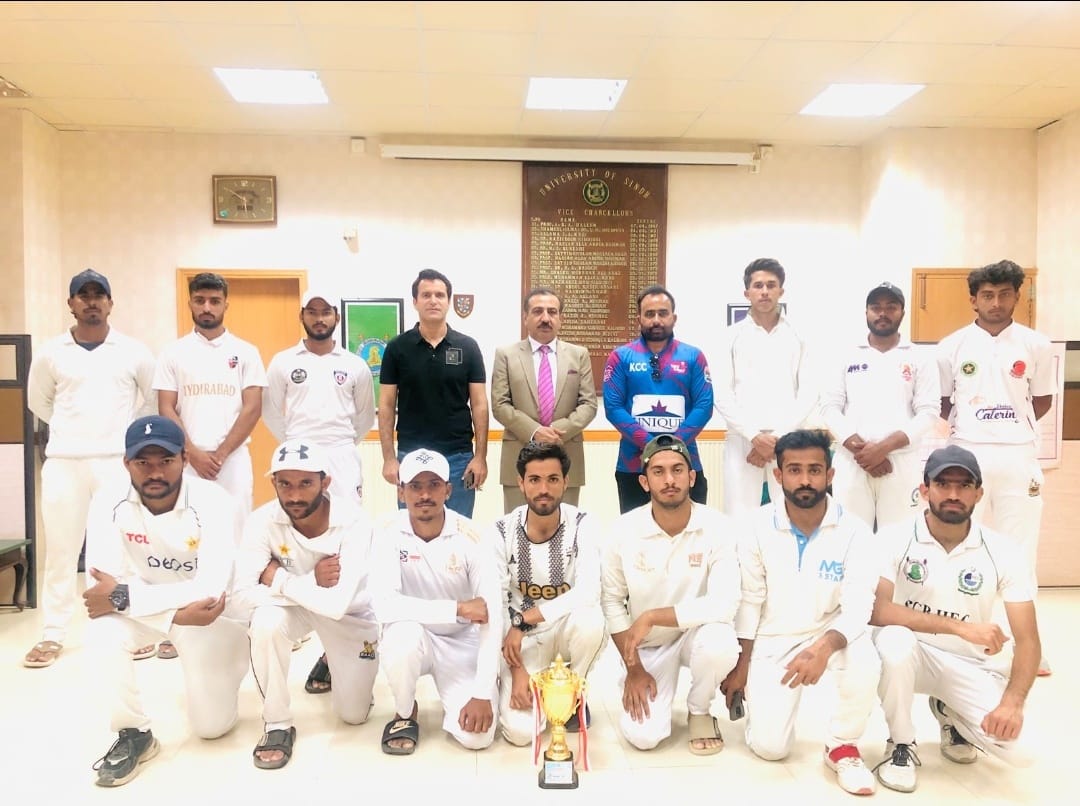.jpg)
Speakers term SCO Summit 2024 beneficial for Pakistan; say country’s vital geographic location gives it an edge in geostrategic, geopolitics, geo-economics
Speakers at a seminar have said that the Central Asian Republics are landlocked allowing Pakistan to provide a sea route to the SCO members, especially non-coastal Central Asia. Pakistan's important geographic location gives it an edge in geostrategic, geopolitics and geo-economics.
They said that Pakistan was a resource-rich country, while its natural resources included coal, gas and minerals gave it an edge in attracting foreign investments.
This they said while addressing the seminar titled “Shanghai Cooperation Organization Summit (SCOS) 2024: Regional Security, Economic Cooperation & Connectivity” held in Pir Hussamuddin Rashidi Auditorium, Institute of Sindhology, University of Sindh, which was jointly organized by the Area Study Center Far East and Southeast Asia (ASC-FESEA) and the Department of International Relations here on Wednesday.
In his presidential remarks, Dean Faculty of Social Sciences, University of Sindh, Jamshoro Professor Dr Hamadullah Kakepoto said that exploring trade relations with SCO member countries could further enhance Pakistan's exports. “If free trade and tariff policies are implemented, Pakistan can serve as a potential market for SCO members”, he said.
He noted that Pakistan had a whole history of war against terrorism. Through that experience, the country could aid SCO in the Regional Anti-Terrorism Structure (RATS) as Shanghai Cooperation Organization members were prone to security issues.
“Hosting Shanghai Cooperation Organization (SCO) summit implies Pakistan’s growing significance in regional dynamics as the summit was a golden chance for our country to show its capabilities in diplomacy, strategic affairs, and economy”, he said and added that Alhamdulillah, Pakistan proved its importance in the region.
Prominent speaker from the Department of International Relations, University of Karachi Professor (Meritorious) Dr. Moonis Ahmar Professor Ahmar highlighted the role of key players like Russia, China and Central Asian nations in promoting peace and stability through the SCO.
He said that the summit, moreover, presented Pakistan as a country not only actively engaged in global dialogues, but also capable of leading initiatives with regional significance.
He said that the conference also showcased the country as a reliable partner for foreign investors at a time when Islamabad was desperately seeking foreign investment to revive its economy. Pakistan’s presidency of the SCO Council of Heads of Government highlighted its role as an active player in regional geopolitics.
Chairperson of SU’s Department of International Relations Prof. Dr. Ishrat Abbasi outlined the seminar's objectives, focusing on the goals of the 23rd Council of the Heads of Government (CHG) summit and its impact on regional security and cooperation.
“The summit will, however, help to elevate Pakistan's diplomatic standing and show that it is an active player in multilateral forums”, she said and added that the CHG meeting discussed ongoing cooperation in the fields of economy, trade, environment, socio-cultural linkages.
She said that it also reviewed the performance of the organization. “The leaders adopted important organizational decisions to further enhance cooperation among SCO member States and approve the budget of the Organization”, Dr Abbasi said.
Chairman Department of IR, Government College University Faisalabad Prof. Dr. Ghulam Mustafa underscored Pakistan's strategic position in fostering multilateralism and its potential to strengthen ties with regional partners, including India. The presence of eight prime ministers from member countries underscored Pakistan’s growing importance within the organization and the region.
He said that the high-level participation signaled that member states viewed Pakistan as a crucial partner in addressing regional challenges and advancing cooperative efforts, reinforcing the seriousness of its diplomatic outreach.
“Diplomacy is a process, not an event. Hosting the SCO summit has shown that Pakistan is an important multilateral player and has enhanced its diplomatic standing with member states,” Dr Mustafa remarked. However, he cautioned against overemphasizing the significance of hosting the event, as the rotation of SCO summits follows an alphabetical order.
Professor Murtaza Khoso discussed the SCO’s significance in global trade and regional cooperation. He said that it was sensitive about criticism that Pakistan wasn't safe for foreigners and felt it had something to prove with the recent SCO meet — and especially with such high-level attendance from key countries in the neighborhood, including close ally China.
“There's a lot at stake for Pakistan with this summit, given domestic imperatives around ensuring security and given the strategic importance of SCO itself," he stressed.
Incharge Director of the Area Studies Center Dr. Mukesh Kumar Khatwani said that SCO member states were represented by the Prime Ministers of China, Russia, Belarus, Kazakhstan, Kyrgyzstan, Tajikistan and Uzbekistan as well as the First Vice President of Iran and External Affairs Minister of India, which was a good omen for regional peace and prosperity.
“Prime Minister of Mongolia (Observer State) and Deputy Chairman of the Cabinet of Ministers and Foreign Minister of Turkmenistan (Special Guest) also participated in the meeting, which itself showcased the success of the event”, Dr Kakepoto said.
Associate Professor at the Area Study Centre Dr Naureen Memon paid the vote of thanks.


